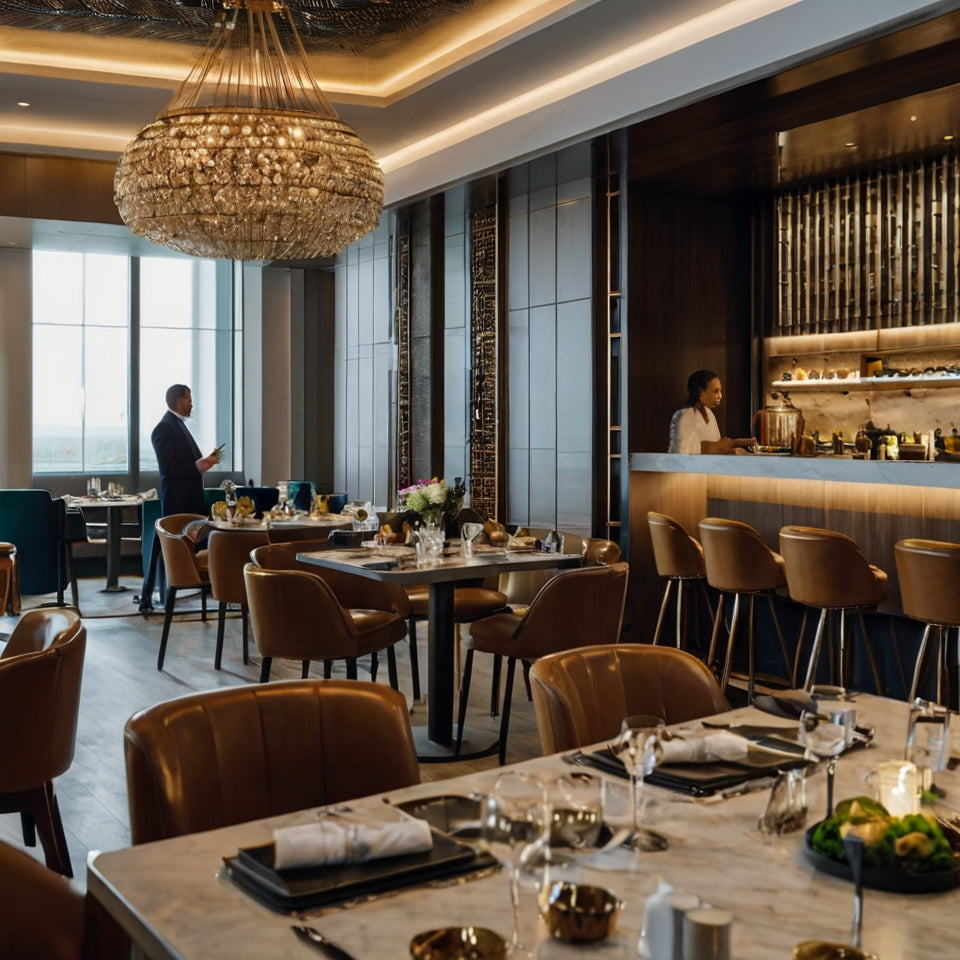The significance of Hospitality as a skill extends beyond its role in just the industry
- Sep 02, 2023
- 0 Comments
Key Insights into the World of Hospitality
The hospitality industry thrives on its core principles of outstanding customer service and the creation of exceptional customer experiences. However, it's important to recognize that hospitality is not limited to a specific business sector; instead, it's a skill set encompassing soft skills, attitudes, and approaches that hold immense value in various industries.
Instilling a hospitality mindset and honing these skills within an organization and its workforce necessitates a leadership approach centred around the well-being of individuals. This transformation can be achieved through targeted training and education programs that focus on fostering a human-centered perspective.
Despite the challenges posed by the pandemic, the global hospitality industry is well on its way to recovery and continues to grow, evolve, and diversify. In fact, it remains one of the fastest-growing employment sectors worldwide. This growth is driven by factors such as rising disposable income, an increasing demand for diverse travel and tourism activities, and the affordability of air travel.
According to the Hospitality Global Market Report, the travel and tourism industry witnessed a substantial 15.1% growth in 2022, with hotels being one of the most economically successful sectors. In the same year, hotels generated a staggering 595,500 million more in profits than in the previous year.
However, with this growth comes increased competition. To stand out in the industry, many CEOs are shifting their focus towards managing hospitality as a science. They are actively exploring new technologies, digitalization opportunities, and rigorous metric analysis. While these strategies are undoubtedly beneficial, it's crucial not to lose sight of the most fundamental element: quality customer service.
Exceptional service is at the heart of hospitality, and it's essential to regard hospitality as a skill rather than solely a competitive industry sector. The skills and approaches that define hospitality have broader applications and can be extended to elevate the standards of customer service and human interactions across various domains of life and business.
So, why is hospitality considered a skill? Hospitality relies on a specific range of abilities and attributes that are pivotal in delivering exceptional customer service.
These qualities include:
1. Service Attitude: Hospitality professionals excel at understanding and meeting customer needs through effective communication, active listening, empathy, and the ability to anticipate and exceed expectations.
2. Soft and Interpersonal Skills: Building rapport, establishing positive relationships, and effectively interacting with individuals from diverse backgrounds require strong interpersonal skills. These qualities, such as friendliness, approachability, conflict resolution, and problem-solving abilities, are transferable to various aspects of life.
3. Adaptability: In today's dynamic world, adaptability is a prized skill. Hospitality professionals excel at adapting to different situations and handling unexpected challenges, making them valuable assets in providing seamless service.
4, Attention to Detail: Attention to detail is paramount in hospitality to ensure every aspect of the customer's experience is flawless. This encompasses maintaining cleanliness, delivering personalized service, and carefully tending to the small details that contribute to a positive experience.
5. Professionalism: Upholding integrity, ethics, and confidentiality is essential in the hospitality industry. Dependability, punctuality, and a commitment to providing outstanding service are expected qualities.
6. Cultural Awareness: Given the global nature of hospitality, cultural awareness and sensitivity are indispensable. Understanding and respecting diverse customs, traditions, and preferences of guests from various cultures contribute to creating a welcoming and inclusive environment.
7. Human-Centricity & Service Excellence: Hospitality places the needs, preferences, and well-being of individuals at the centre of all activities and decision-making processes. This human-centric approach is the essence of hospitality and aims to build satisfying experiences.
Leadership plays a pivotal role in cultivating hospitality as a skill. To instil this mindset within an organization and reflect it in customer service, leaders must embrace a new paradigm that prioritizes the human perspective of hospitality. Training programs, such as those offered by EHL, provide an avenue for leaders to enhance their hospitality skills and infuse a well-being perspective into their industries. These programs encompass practical tools for improving employee well-being, individualized approaches to understand and support team members, and the development of a human mindset.
It's not just leadership that needs to embrace hospitality as a skill; employees and professionals must also understand its importance. Many of them interact directly with customers daily, making their grasp of hospitality skills crucial. Effective training programs should be relevant, engaging, continuous, and aligned with the organization's goals. Incorporating interactive learning methods like group discussions, hands-on exercises, case studies, role-plays, and simulations can enhance engagement and knowledge retention.
In conclusion, hospitality is synonymous with exceptional customer service, making it a powerful skill that should always be at the forefront of your team's approach. Embracing the principles of hospitality and nurturing a well-being mindset can lead to remarkable transformations in various industries, ultimately enriching the customer experience and fostering positive interactions.
Key Takeaways
- The hospitality sector thrives on delivering exceptional customer experiences and customer service.
- Hospitality skills are transferable and valuable in various industries.
- Developing a hospitality mindset requires prioritizing people's well-being through targeted training and education.
- The global hospitality industry continues to grow post-pandemic, driven by factors like increased disposable income and diverse travel options.
- Hospitality is recognized as a valuable skill due to its unique abilities and attributes.
- These qualities encompass a service-oriented attitude, interpersonal skills, adaptability, attention to detail, professionalism, cultural awareness, and human-centricity.
- Leadership plays a pivotal role in fostering hospitality as a skill.
- Training programs can help leaders and employees embrace hospitality skills and a well-being mindset, with a focus on relevance, engagement, continuity, and alignment with organizational goals.
Shop online for commercial equipment sales, restaurant fit-outs, servicing or finance. Fast shipping and price match promise.
Contact us at 02 4228 0100 or visit us at www.icegroup.com.au
► Follow ICEGroup Hospitality on social media
FACEBOOK // https://lnkd.in/gKEVT7vS...
INSTAGRAM // https://lnkd.in/g7_rDUJ8
TWITTER // https://lnkd.in/g2aT6miz











